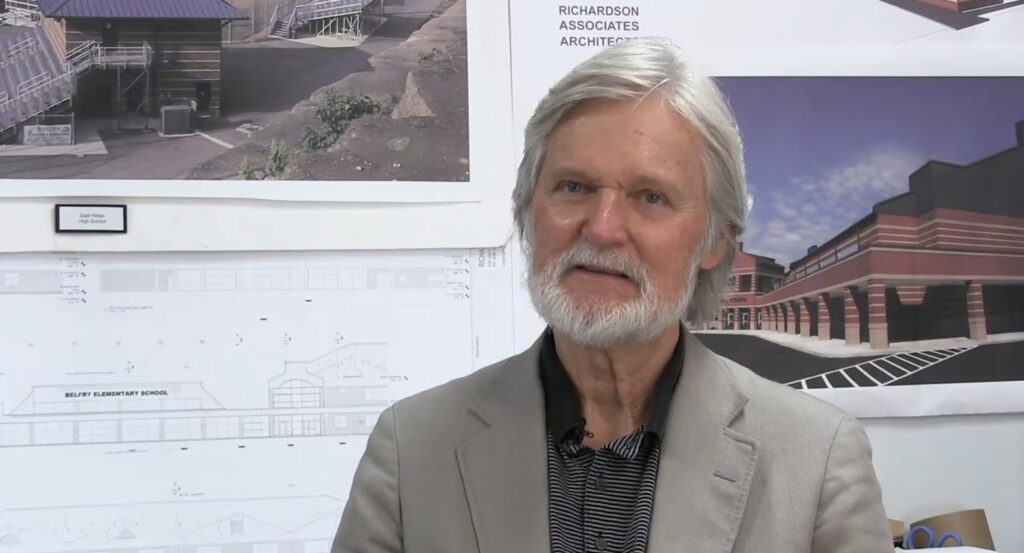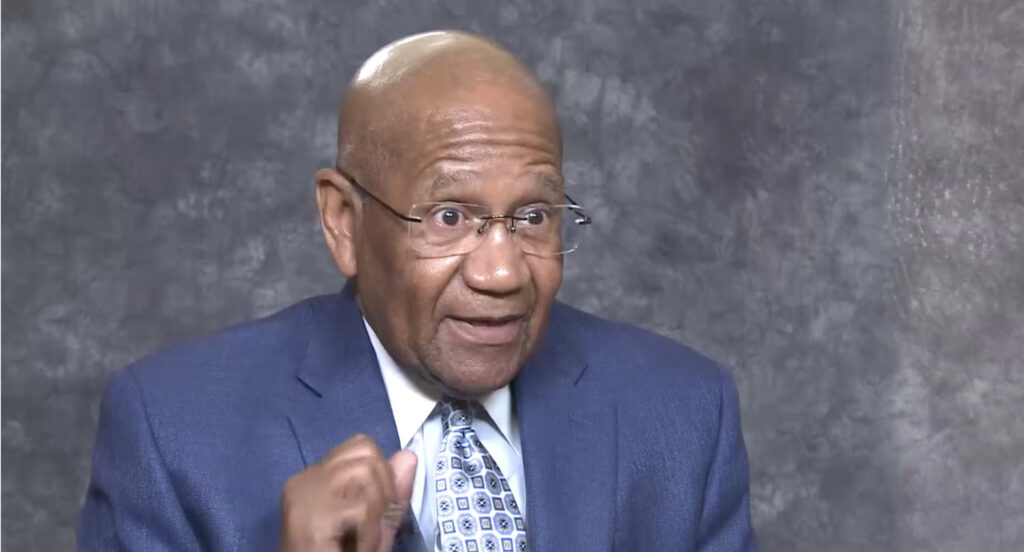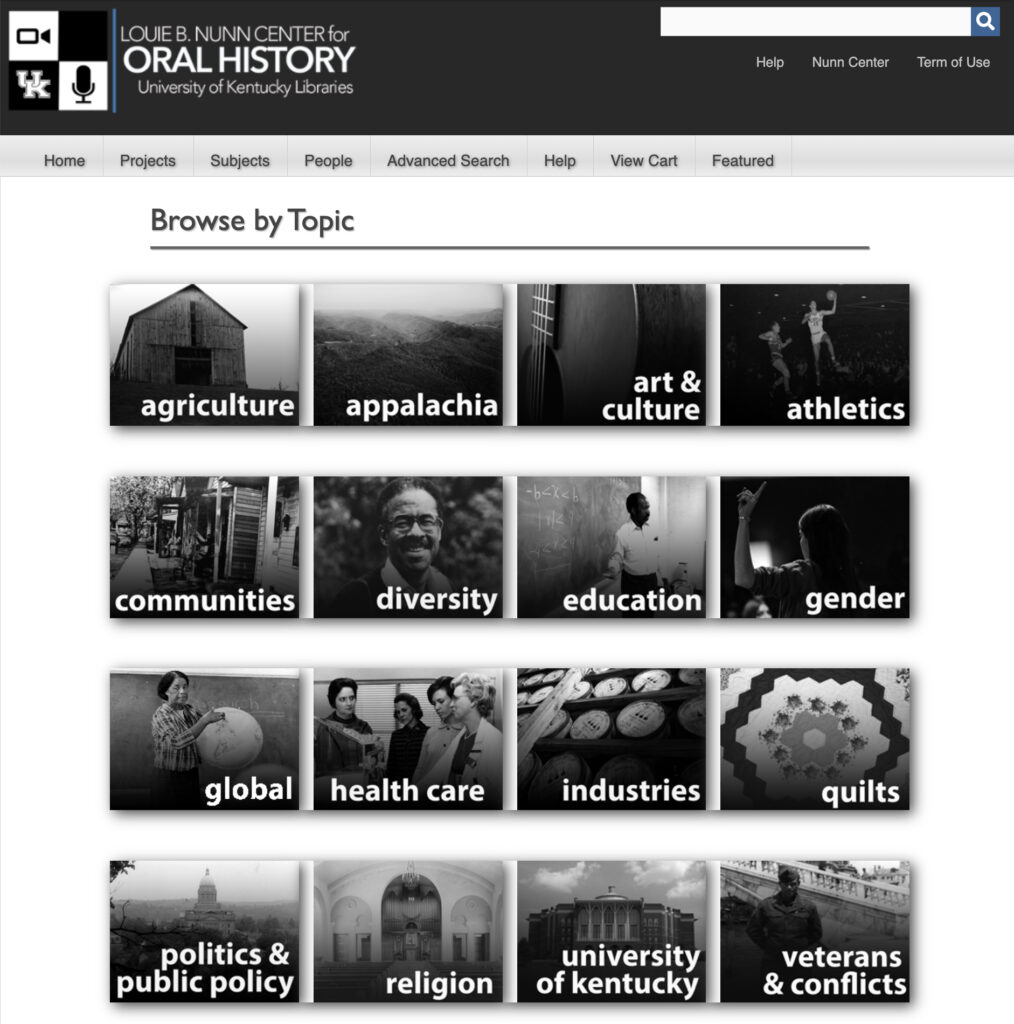This article appeared in the Volume 4, Issue 1 Spring/Summer Winter 2023 issue of the Appalachian Curator. Click here to view a PDF of the full issue.
by Kopana Terry
The Louie B. Nunn Center for Oral History is celebrating its 50th anniversary in 2023. Under the Special Collections Research Center umbrella at the University of Kentucky Libraries (UKL), the Nunn Center is one of America’s largest oral history archives, with over 18,000 interviews from more than 700 unique projects. Here, oral history projects documenting American civil rights, industry, health care, veterans, the India-Pakistan partition, survivors of Haiti’s devastating earthquake, religion, small towns, legendary sports figures, Kentucky governors, and the commoner are preserved alongside an extraordinary array of Appalachian-related projects. Additionally, the Nunn Center offers community, collegiality, and an archival home to scholars using oral history as a research methodology or freelance oral historians documenting families or communities.
Donated in 1979, the Frontier Nursing Service (FNS), is one of the earliest Appalachian projects at the Nunn Center. The FNS started “in 1925 by Mary Breckinridge to bring primary health care to remote areas of eastern Kentucky.” (1) The collection of 212 oral history interviews conducted primarily from 1978-1980 documents the history of the FNS in conversations with doctors, nurses, and residents who benefitted from FNS services. It provides insight into, among other things, “Appalachia, farming, logging, home remedies, education, social activities… infant mortality… the Frontier Graduate School of Midwifery… the Cutshin Clinic… Leslie County in the 1920s, and Leslie County politics.”(2) Forty years later, the FNS remains one of the most accessed and published oral history projects at the Nunn Center.
By the early 1980s, scholars from multiple disciplines were depositing their oral histories with the Nunn Center, and many were focused on Appalachia. Arguably, the most recognized of these is Allesandro Portelli’s, They Say in Harlan County. (3) The widely-heralded book by the same name took much of its analysis from the 75 oral histories conducted by the respected Italian scholar of American Literature, musicologist, journalist, and oral historian. Portelli differentiates oral history from other historical sources by “orality, narrative, subjectivity, credibility, objectivity, authorship, performativity, mutability and collaboration.” (4) Scholars laud such perception, and his work in the application of oral history has secured his place in the canon of oral history practice “[O]ral history is a work of relationships; …a relationship between the past and the present…and between the oral form of the narrative and the written or audiovisual form of the historian’s product,” (5) Portelli explains. This responsibility to the relationship makes his work, and They Say in Harlan County, distinguished among Appalachian scholarship.

Oral History
Other influential Appalachian projects came to the Nunn Center in the 1980s, such as Immigrants in the Coal Fields, Roving Pickets, Brookside Mine Strike (1973-1974), Social History and Cultural Change in the Elkhorn Coal Fields, Teges Creek, Out-Migration Project: Urban Appalachian Women in Cincinnati, Ohio, and the Appalachian Regional Commission. Together, these projects showcase the growing appreciation of oral history to scholarly research and Appalachian Studies. And because these projects are significant to multi-disciplinary researchers, many have been indexed using the Oral History Metadata Synchronizer (OHMS) and made available for free to anyone with an internet connection through the Nunn Center’s catalogue SPOKEdb at kentuckyoralhistory.org.
The 1990s saw diversified growth in the Nunn Center’s Appalachian holdings. Women of Coal, Lesbians and Gays in the Mountains, Appalachian Simple Lifestyle Expression and Experience, Barthell Coal Company (McCreary County), and Eastern Kentucky Regional Planning Commission were all products of 90s scholarship. Like the earlier projects, many of these are indexed and available online through SPOKEdb. The War On Poverty Oral History Project is especially notable during this period for examining President Lyndon B. Johnson’s social welfare legislation to reduce American inequities. In his 1964 State of the Union Address, Johnson talked about America’s 20% poverty rate, explaining, “The cause may lie deeper in our failure to give our fellow citizens a fair chance to develop their own capacities, in a lack of education and training, in a lack of medical care and housing, in a lack of decent communities in which to live and bring up their children.”(6) Appalachia was considered ground zero for the War On Poverty by many. The seventy-two interviews from this project explore the rhetorical war’s effect in and on Appalachia and the various social programs that sprang from it, such as VISTA and Head Start.

Nunn Center for Oral History
Interest in and exploration of Appalachia has not wavered after the turn of the twenty-second century. The projects have become broader in scope and content, such as Just Transition: Post-Coal Transition Movement In Appalachia, Affrilachian Symposium, Landscapes and Forests of Kentucky, the University of Kentucky Appalachian Center, Jenkins Coal Town Archaeology, Personal Responsibilities in a Desirable Environment, and the award-winning three-project series ACTION: Cancer In Kentucky. Developed by the University of Kentucky’s Appalachian Career Training In Oncology (ACTION) Program (7), the oral history project(s) “prepares high school and undergraduate students from the University of Kentucky to pursue oncology careers and to engage the community in ways that will enhance cancer education,” (8)

Interviews from the more recent oral history projects Lynch (Kentucky) and Exploring the Legacies of Appalshop are particularly consequential as the combined 72 interviews were conducted on video. These video interviews extend the power of oral history through sound and sight, bringing cutting-edge oral history capture into the archive’s fold. The 55 Appalshop interviews are indexed and freely accessible through SPOKEdb at kentuckyoralhistory.org.
The Appalachian projects at the Nunn Center for Oral History are some of the collection’s most requested, accessed, and valuable interviews. The exploration of Appalachia and Appalachians will continue, and the Nunn Center will always provide a preservation home for those stories with an eye toward easy access for researchers around the world.
Notes:
(1) Frontier Nursing Service Oral History Project. Louie B. Nunn Center for Oral History, University of Kentucky Libraries. January 1, 1978. https://kentuckyoralhistory.org/ark:/16417/xt7kwh2dbt7n
(2) Ibid.
(3) Portelli, Alessandro. They Say in Harlan County : An Oral History. New York: Oxford University Press, Incorporated, 2010.
(4) Abrams, Lynn. Oral History Theory. London ;: Routledge, 2010.
(5) Portelli, A. (2009). What Makes Oral History Different. In: Giudice, L.D. (eds) Oral History, Oral Culture, and Italian Americans. Italian and Italian American Studies. Palgrave Macmillan, New York. https://doi.org/10.1057/9780230101395_2
(6) Lyndon B. Johnson, Annual Message to the Congress on the State of the Union. Online by Gerhard Peters and John T. Woolley, The American Presidency Project https://www.presidency.ucsb.edu/node/242292
(7) Appalachian Career Training In Oncology (ACTION) Program https://ukhealthcare.uky.edu/markey-cancer-center/research/action
(8) ACTION: Cancer in Kentucky. Louie B. Nunn Center for Oral History, University of Kentucky Libraries. January 1, 1978. https://kentuckyoralhistory.org/ark:/16417/xt7dxgqzr05s3
Bibliography:
Frontier Nursing Service Oral History Project. Louie B. Nunn Center for Oral History, University of Kentucky Libraries. January 1, 1978. https://kentuckyoralhistory.org/ark:/16417/xt7kwh2dbt7n
Portelli, Alessandro. They Say in Harlan County : An Oral History. New York: Oxford University Press, Incorporated, 2010.
Abrams, Lynn. Oral History Theory. London ;: Routledge, 2010.
Portelli, A. (2009). What Makes Oral History Different. In: Giudice, L.D. (eds) Oral History, Oral Culture, and Italian Americans. Italian and Italian American Studies. Palgrave Macmillan, New York. https://doi.org/10.1057/9780230101395_2
Lyndon B. Johnson, Annual Message to the Congress on the State of the Union. Online by Gerhard Peters and John T. Woolley, The American Presidency Project https://www.presidency.ucsb.edu/node/242292
ACTION: Cancer in Kentucky. Louie B. Nunn Center for Oral History, University of Kentucky Libraries. January 1, 1978. https://kentuckyoralhistory.org/ark:/16417/xt7dxgqzr05s3
University of Kentucky Markey Cancer Center, Appalachian Career Training In Oncology (ACTION) Program, https://ukhealthcare.uky.edu/markey-cancer-center/research/action
Louie B. Nunn Center for Oral History, Special Collections Research Center, University of Kentucky Libraries, Lexington, KY. https://kentuckyoralhistory.org/
ACTION: Cancer in Kentucky. Louie B. Nunn Center for Oral History, University of Kentucky Libraries. January 1, 1978. https://kentuckyoralhistory.org/ark:/16417/xt7dxgqzr05s3 7 Appalachian Career Training In Oncology (ACTION) Program https://ukhealthcare.uky.edu/markey-cancer-center/research/action
Additional Appalachian projects at the Nunn Center archive include, but are not limited to Beech Creek Study, Coal Operators, Hensley Settlement, Mountain Club, Moonshiners and Revenuers, Assembly of God Church, Family and Gender in the Coal Community, Christian Appalachian Project, Coal Mining Mechanization, Appalachian Protest Music, Coal Mining, Cranks Creek Survival Center, Kentucky Farmers Inc., the Terry (Casebolt), Prater, Adams, Hamilton Family, Appalachian Regional Healthcare, Politics in Lee County, Sharp Family, Appalachian Community Leadership and Outreach, Appalachian Appropriate Technology, Amidst the Sparrow’s Nest: A Look at Eastern Kentucky Through the Arts, Hazel Durbin’s Quilted Life, Stories of Place (Martin County), Conversations with Gurney (Norman), Kentucky Folk Art, Eastern Kentucky Craft Industry: Entrepreneurship in the Arts, Understanding the Craft Industry in Eastern Kentucky, Eastern Kentucky Craft Industry: Beyond Entrepreneurship, Examining Alternative Economic Practices in Eastern Kentucky’s Craft Industry, Queer Appalachia, Health Care Advocates in Eastern Kentucky.
Kopana Terry is the Oral History Archivist at the Nunn Center for Oral History